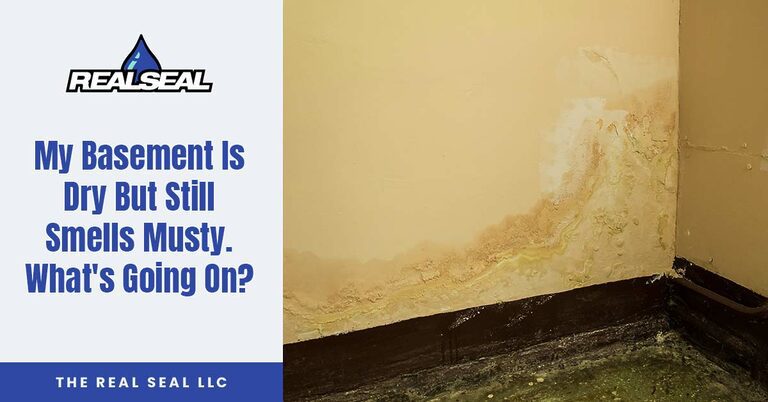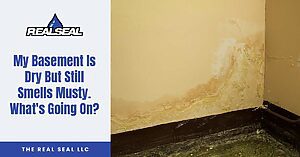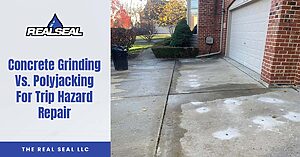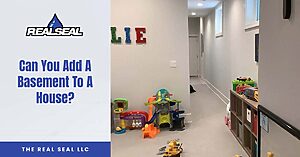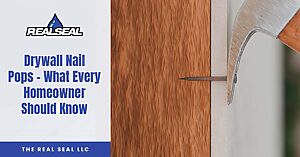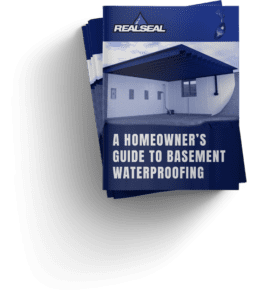Have you been telling people my basement is dry but still smells musty? What’s going on? We hate to be the bearer of bad news, but a musty smell is a sign of mold growth, even if you don’t have visible water in the basement. High humidity alone in the basement is enough to trigger mold growth. In this article, we’ll review why you shouldn’t ignore a musty odor in your basement, steps you can take to help eliminate mold in your basement (and the odor), and more.
Is A Musty-Smelling Basement Really A Problem?
Yes, a musty-smelling basement is a problem because it means there’s mold in your basement and this can impact your family’s health. This is due to something called the stack effect. The stack effect occurs when warm air rises and exits the home through the ceiling and roof. It then pulls air from the basement to fill the vacuum left behind. If your basement is full of mold, the air coming out of it will be as well. It has been estimated that up to 50% of the air in your home originates in the basement, so this is something to consider.
How Can Mold Grow in a Dry Basement?
Mold can’t grow in a dry basement. So, if you have mold in your basement, it means it isn’t as dry as you think. Mold needs food, water, and oxygen to grow. It also requires a temperature above 40 degrees Fahrenheit. Most basements provide all that mold needs in abundance. Even when you don’t see visible water in the basement (pooled on the floor, running down the walls), the humidity might be high enough for mold to grow. It is generally recommended that the relative humidity be below 60% to inhibit mold growth. Most basements have a humidity level above 60%.
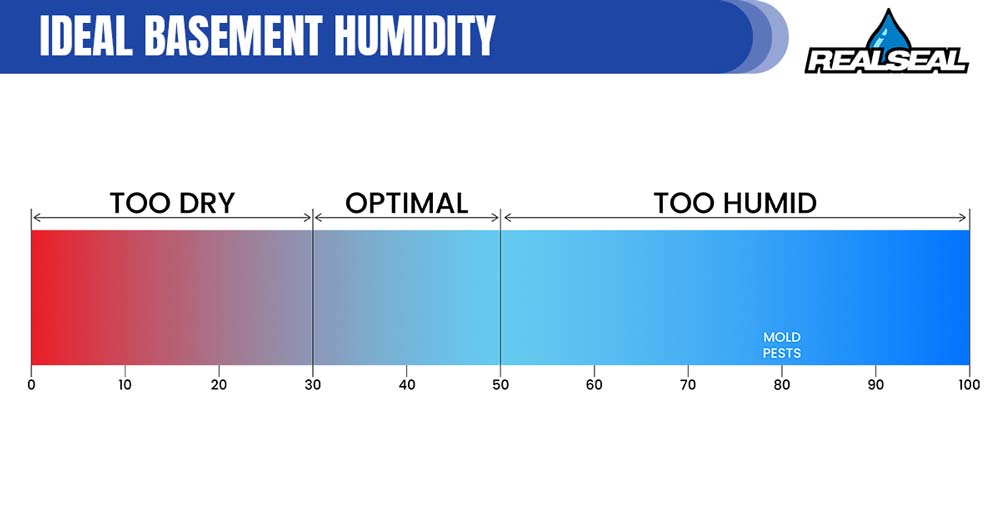
It’s important to note that a musty smell is just one of the signs of mold growth and dampness. Other signs of excess moisture and high humidity in a basement include condensation on pipes or basement windows. Also, check the basement for any visual signs of mold growth, which may appear as black spots or stains.
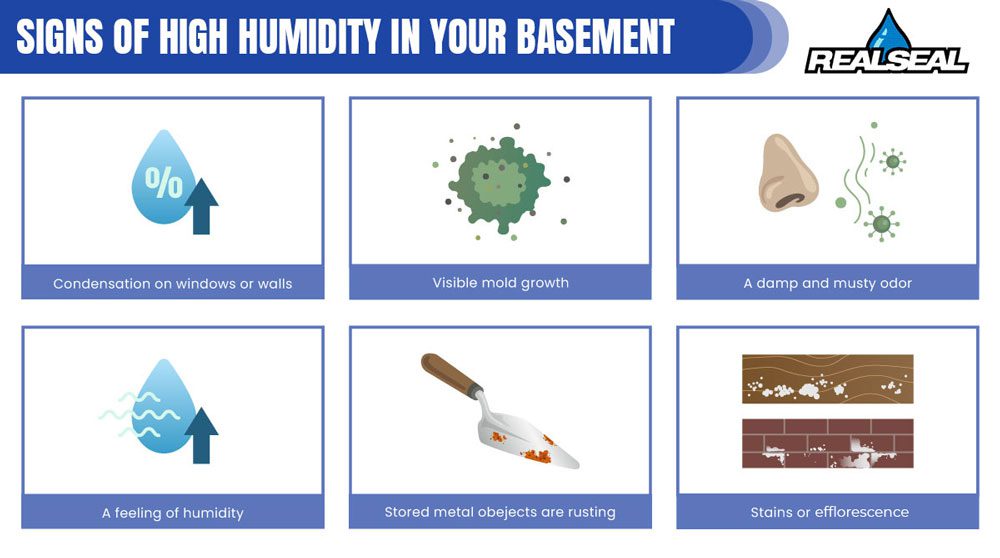
How Dangerous Is Mold And Mildew?
Many people are sensitive to mold and may be allergic to it. Some, however, are more susceptible to having a bad reaction—for example, those with respiratory problems, including asthma and COPD (chronic obstructive pulmonary disease).
You might not even notice the musty smell upstairs because you have grown accustomed to it, but if the basement smells musty, you almost certainly have a problem upstairs as well. The bottom line is that having a musty smell, even when the basement is dry, is an issue for the entire house.
A Musty Smell Could Be A Sign Of A Foundation Problem
A musty smell in a basement is sometimes more than just a sign of mold growth. Mold in the basement could also mean there’s a problem with the foundation. This is because excess moisture in the ground around a foundation is a leading cause of foundation trouble. Here are some other possible signs your home might have a foundation problem:
- Leaning Chimney – The foundation for the chimney usually doesn’t have the same support as the rest of the home. You may notice that the chimney is cracked or starting to pull away from the house.
- Sticking Windows and Doors – The window and door frames can change shape when the foundation shifts. When this occurs, you may notice that they are sticking when you open or close them.
- Bowing Basement Walls – Hydrostatic pressure on the basement walls due to excess groundwater around the foundation can cause a foundation wall to bow inward and even crack. These cracks are typically more than 1/10″ wide and may expand. They may be horizontal, diagonal, or stair-step cracks.
- Uneven or Sloping Floors – Differential settlement is when the foundation settles at different rates in different areas. It may lead to uneven or sloping floors. Some homeowners notice this problem because they feel dizzy walking across the room.
- Cracks in walls, ceilings, and floors – Sometimes, a crack might run across the ceiling and down a wall. A floor crack limited to one or two tiles might have been caused by something falling on the floor. However, a floor crack that runs the length of the room is almost always a sign of a foundation problem.
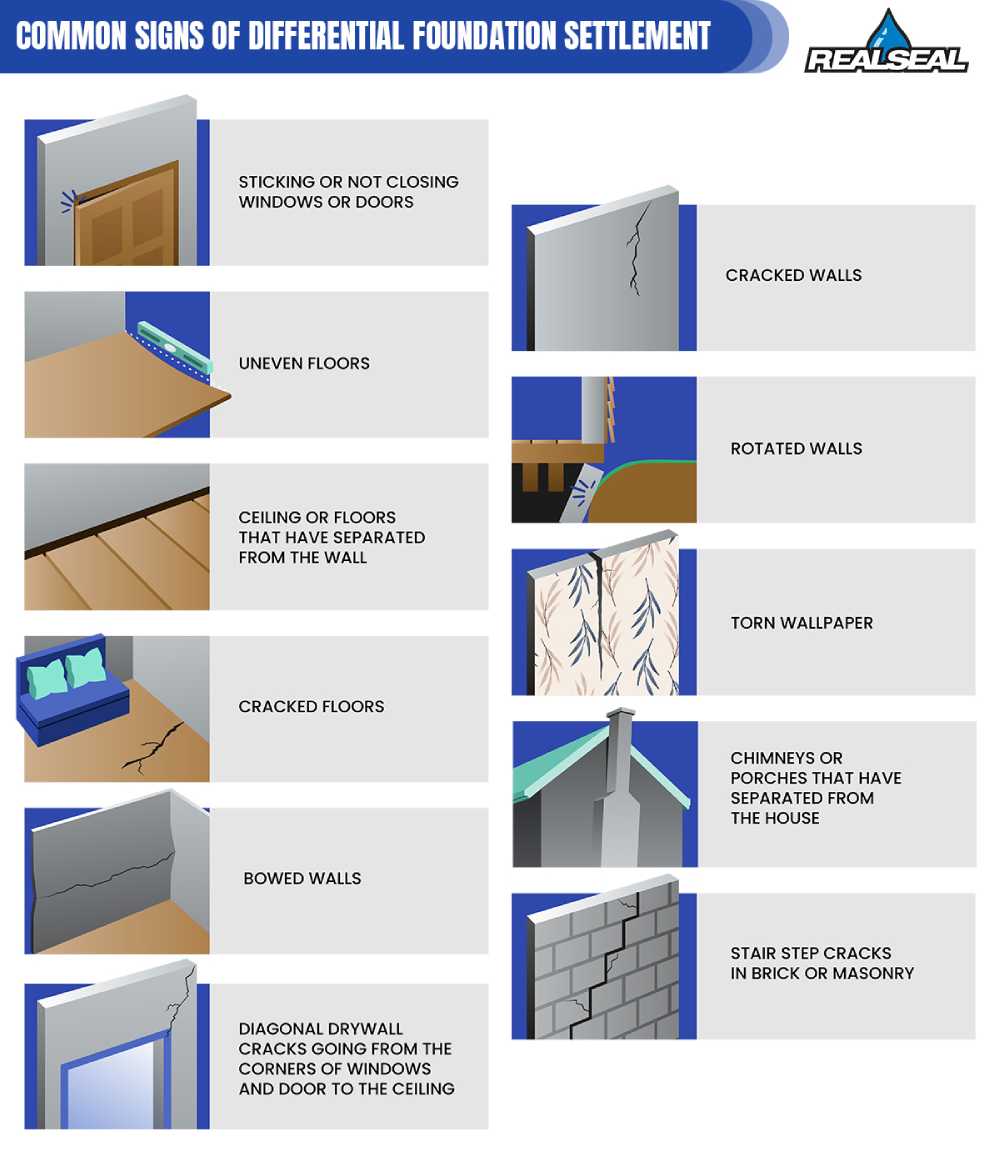
Methods To Control And Eliminate The Mold
The best way to help eliminate mold and the accompanying musty smell is to control groundwater around the foundation. There are several ways to do this, including the following:
- Install a drain tile system – Installing a drain tile system is one very effective way of lowering the basement’s humidity level because a drain tile system prevents excess moisture from building up in the soil outside the foundation wall. A buried, perforated drainage pipe catches excess moisture and channels it toward a sump pit. When the pit fills with water, a sump pump kicks in and releases the water away from the foundation.
- Regrade your yard, if necessary – You can also reduce how much water is near the foundation by regrading the yard to allow the water to drain away naturally.
- Use downspout extensions – Downspout extensions can also help by taking the roof runoff a safe distance from the foundation before release.
- Clean your gutters regularly – You don’t want water spilling over, running down the side of your house, and soaking the ground around the foundation.
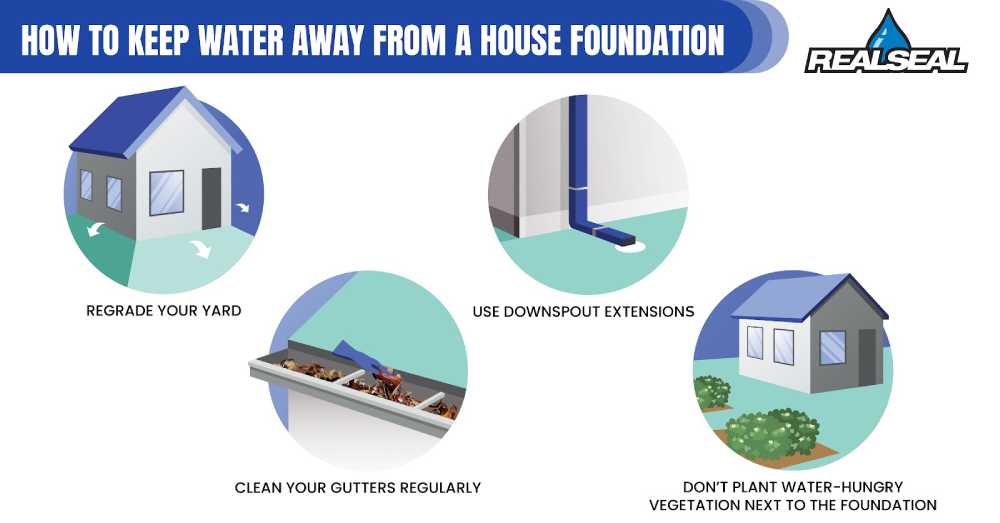
If you’re in Chicagoland and have questions about a musty basement smell, you can call The Real Seal for a foundation evaluation on the ideal basement humidity level and a free estimate on any work that may need to be done.
